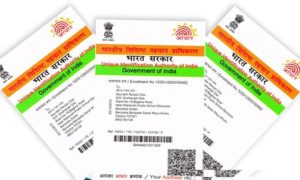The government has a scam alert for citizens. The ministry of information technology has warned citizens about e-challan scam that people are losing lakhs to. The electronic traffic ticket or e-challan is the penalty that one needs to pay for traffic violations. However, cybercriminals are misusing e-challans to dupe people.
Read More:-PIB fact checks SBI rewards scam, warns ’never click unknown links, files’. Check details here
In this scam, cybercriminals send message (SMS, email, or even a fake app notification) claiming you have an outstanding e-challan that needs to be paid. The message often uses urgency tactics, threatening penalties or vehicle confiscation if you don’t pay immediately. Such messages usually include a link or phone number for “easy payment.” Some messages may also ask users to download an app.
Here’s how scammers trick you:
- Fake urgency: The message creates panic, pressuring you to act quickly without verifying the information.
- Deceptive links: Clicking on the provided link might take you to a fake website that looks like an official government portal. This website might steal your personal information or credit card details when you attempt to “pay” the fine.
- Suspicious phone numbers: Calling the provided number could connect you to a scammer who might try to extract personal information or trick you into making a payment over the phone.
Read More:- Fish, Meat, And Vegetable Prices Skyrocket In Kolkata On Eve Of Bhai Dooj
How to protect yourself:
- Never click on links in suspicious messages: Always verify the information independently.
- Double-check the sender: Legitimate e-challan notifications typically come from official government email addresses or verified phone numbers. Be wary of generic sender names or suspicious phone numbers.
- Visit official websites: Instead of clicking on links, go directly to the official website of your local traffic authority to verify any outstanding challans. You can find the official website address through government websites or trusted sources.
- Look for specific details: Genuine e-challan notifications will include details like your vehicle registration number, the specific violation, and the amount of the fine. If these details are missing, it’s likely a scam.
- Don’t share personal information or make payments through unverified channels: Only make payments on official government websites or authorized payment gateways.
- Report suspicious messages: If you receive a suspicious e-challan message, report it to the authorities or cybercrime cell to help prevent others from falling victim.





































